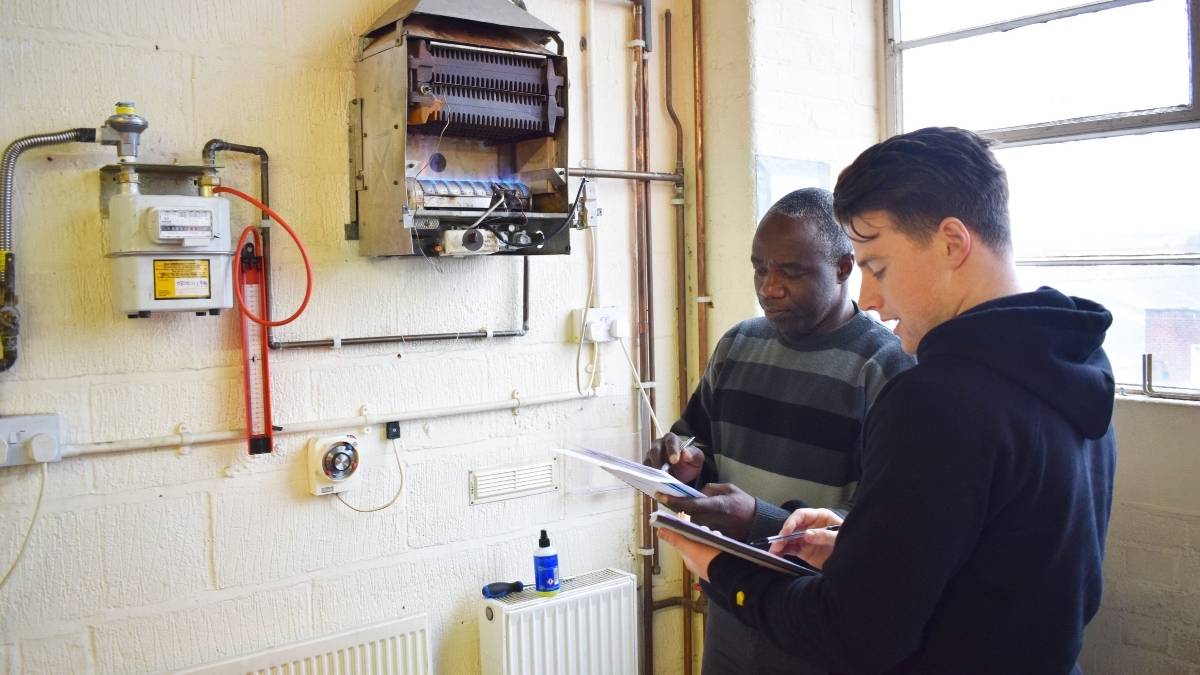When you’re looking to hire the right person for the job, it’s essential that you know just who to contact. Similarly, if you’re starting a new career, you want to make sure that you complete the right training to get to where you want to be.
Gas engineers are in high demand and even with upcoming changes to the use of gas boilers on the horizon, there’s still a need for these trained professionals. But sometimes people get this role confused with others, like a plumber. So, what jobs do gas engineers do?
Gas engineers are mainly responsible for the installation, repair and maintenance of gas appliances such as a boiler or gas cooking system.
But these people have varied jobs and require a lot of skills to be the best gas engineers they can be. In this guide, we’ll be discussing what it’s like to be a gas engineer and what you can expect in your day to day work. If you’re looking to hire someone to complete gas work for you, this guide will also help you figure out exactly who you need.
What Is The Role Of A Gas Engineer?
Gas engineers are trained to install, maintain, service and repair gas appliances. These appliances can vary greatly. Even though many people associate gas engineers only with boilers, they will also install things like hot water cylinders, gas cooking equipment, gas fires and many other things. But before anyone can start working as a gas engineer, they must be on the Gas Safe Register.
However, it is worth keeping in mind that, when doing your training, you can only register for the appliances you are trained to work with. It is illegal to work on appliances for which you have not trained so you should place a focus on this during your studies. That said, it is entirely possible to learn a single appliance and then continue your training as you work, building up your repertoire of skills.
Most gas engineers will be trained to work on both commercial and domestic projects. In fact, there is a very high demand for commercial gas engineers as this ensures that the project meets all legal requirements and safety regulations.
In terms of what a gas engineer does at work, there are lots of different jobs they’ll need to attend. Alongside working on gas appliances, you will also need to perform diagnostics on systems and repair them as needed. You’ll be working closely with customers, providing quotes and explaining their options as well as doing jobs such as checks for safety.
What Skills Does A Gas Engineer Need?
Becoming a gas engineer does involve a lot of dedication to working with appliances. However, there are other skills that you’ll need to be successful. Here is just some of what’s required.
- Problem solving skills
- Good time management
- Good knowledge of maths
- Able to use tools and materials effectively and as needed
- Have a sense of commitment
- Excellent customer service skills
- Good communication skills
- Continued updating of industry knowledge
A Typical Working Day For A Gas Engineer
When you are working as a gas engineer, no two days will be the same. This is a great career choice for those that don’t want a monotonous working day. That said, you will still normally work 9-5 Monday to Friday, with some exceptions.
The exceptions would be when you are on a 24 hour call out for emergencies. If you work for an employer, the chances are that your call out times will be shared among other employees, but as a self employed gas engineer, you may always be on call. The upside to this is that you will be paid more overtime and extra in emergency call out fees if you’re self employed.
You’ll spend a good part of your day fitting and repairing boilers but this is by no means the limit of what you’ll do. You might be working on gas leaks or problem solving where there are energy issues. What you do each day will usually be dictated by your training so make sure to qualify in something that really interests you.
When working as a gas engineer, you’ll spend a good portion of your time interacting with customers. You’ll come face to face with your clients and you’ll need to be able to explain issues to them and provide options and advice.
Gas Engineer vs Heating Engineer vs Plumber
If you are looking to hire someone to complete work on your property then you may be debating whether to hire a gas engineer, a heating engineer or a plumber. While the three jobs do overlap to a degree, there are differences so it’s important to choose the right person.
- Gas engineers work with anything that is solely gas and are Gas Safe Registered to carry out this work safely and legally. Depending on the training of the particular engineer, they may be able to work on some appliances or all things gas related.
- Plumbers work with pipework, water systems, drainage etc but they are not allowed to work on boilers or any gas products.
- A heating engineer is someone that’s often found working alongside a gas engineer. They are able to perform repairs and maintenance on heating systems that do not involve gas. They’re usually NVQ trained but are not Gas Safe Registered.
Conclusion
A gas engineer is an important job that involves installing, repairing and maintaining gas appliances like fires, boilers and cooking systems. These professionals must be Gas Safe Registered to work in the UK and are different to plumbers or heating engineers.
